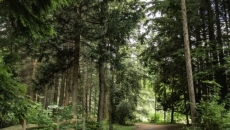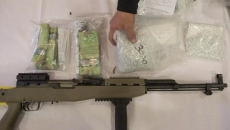OTTAWA — Prime Minister Justin Trudeau marked the 150th anniversary of the Royal Canadian Mounted Police on Tuesday by acknowledging mistakes the force has made in the past, and expressing hope for change.
The RCMP has planned events Tuesday and throughout the year that the national police force says are meant to demonstrate pride, but also humility and efforts at reconciliation.
In a statement, the prime minister encouraged Canadians to take part in those events, calling the RCMP one of the most respected police organizations in the world.
For a century and a half, the Royal Canadian Mounted Police has served and protected Canadians. As we mark their 150th anniversary, we thank all RCMP employees, past and present, for their dedication. Read Prime Minister Trudeau’s statement: https://t.co/4UxDxGigS3 #RCMP150 pic.twitter.com/vo29fyoj8b
— CanadianPM (@CanadianPM) May 23, 2023
But he also urged the RCMP to hold to its plans for improvement and change.
"As we mark this milestone anniversary, we acknowledge that while the errors of the past cannot be forgotten, they can be learned from," Trudeau said in the statement Tuesday.
"The RCMP will continue to support healing and reconciliation, as it continues to keep our communities safe now and into the future."
In a statement, the force says it plans to use the sesquicentennial to share the RCMP's efforts to create a more modern organization that engages in authentic reconciliation with Indigenous Peoples and ensures the safety of all Canadians.
It also highlights its strategic plan for 2023 to "address issues of trust," though the plan doesn't go into specifics.
Inquiries and commissions over the decades have made suggestions to reform the police service.
RCMP officers played major roles in Canada's history, attempting to maintain order during the Klondike Gold Rush and serving as Canada's main intelligence agency during the Cold War.
But it has also played darker roles in the past century-and-a-half, including repressing Indigenous uprisings and acting as "truant officers" to enforce attendance at residential schools.
Its mandate now sees Mounties take on national and rural policing to varying degrees across Canada — a model that has garnered criticism for leaving remote communities underserved.
The RCMP's plan includes recruiting people of diverse backgrounds and addressing systemic racism, being more transparent about serious events and improving reconciliation efforts with Indigenous peoples.
Thundering horseback performances of the RCMP Musical Ride, barbecues and community events across the country arealso on the agenda.
When Canada's founding leaders first conceived of a federal police service, history tells us it was merely an emergency measure, a contingency plan to enforce Canadian laws throughout what was then known as the North-West Territories.
The day Parliament voted the service into existence on May 23, 1873, is now recognized as the official founding of what would eventually become the RCMP.
But the first big case, months later, truly kick-started the force's long and sometimes painful history.
In spring 1873, a famine had pushed a group of Nakoda to venture south of their traditional territory toward Cyprus Hills, in modern-day southern Saskatchewan.
They were camped not far from some whisky traders when they encountered a group of American wolf hunters whose horse had been stolen.
"When the hunters encountered the innocent Nakoda, accusations led to conflict, events escalated catastrophically out of control, and the hunters brutally killed the Nakoda," the government's online account of the Cypress Hills Massacre reads.
Some 20 men, women and children were killed.
In Canada's earliest days, the first provinces to band together under Confederation were each responsible for their own policing and the only national officers were mainly responsible for guarding Parliament Hill.
That caused a minor problem when the North-West Territories was brought into the fold in 1870. The territories included what is now known as Yukon, the Northwest Territories, Nunavut and much of the prairies.
The territories didn't have their own police service, so Parliament passed a law to create the North-West Mounted Police three years later.
It wasn't until August, though, when news of the massacre reached Ottawa, that an Order-in-Council was actually signed to establish the service.
A year later, 300 recruits marched west to secure the frontier.
The RCMP and Canadian government agree the Cypress Hills Massacre spurred the creation of the federal police service, and though arrests were made, the perpetrators were never brought to justice under Canada's burgeoning legal system.
The service's role continued to evolve until the modern form of the RCMP was established in 1920, and the Mounties have long since become an iconic symbol of Canada.






